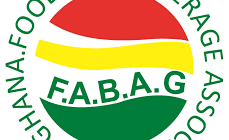L.I seeking to restrict imports will be a punishment and impede trade – GUTA
- Posted on
- Comment

The President of the Ghana Union of Traders Association (GUTA), Dr Joseph Obeng, has expressed skepticism regarding the effectiveness of the Trade and Industry Ministry’s decision to restrict the importation of some selected strategic products in the country.
Speaking on JoyNews’ PM Express, Dr Obeng raised concerns about the proposed Legislative Instrument (L.I) being laid in Parliament, emphasising the need for a solid foundation and clear objectives.
“It is very important that we do the needful, it is very important that we put the objectives ahead of the restriction so that as a country, we know what we are actually doing,” he said on Tuesday, November 28.
The GUTA President highlighted a critical lack of information regarding the threshold for importation, questioning whether it is 20, 40, or 60 percent of the total consumption that would be allowed.
According to him, without these figures, traders would be left uninformed about the quantity or percentage of products they could import.
While acknowledging the importance of boosting local productivity and shoring up Ghana’s foreign exchange reserves, Dr Obeng criticised the current approach.
“If it should be done, it should be done well. What we’re doing will not achieve anything. It does not have any foundation and it is not going to help us.
“Instead, it is going to be a punishment and it is going to impede on the trade facilitation,” he told the host, Aisha Ibrahim.
Dr Obeng further expressed reservations about the sector, Minister, K.T Hammonds suggestion to settle disputes in court, stating, “Which businessman in this trade liberalisation era would go to court just because I want to import a single item? I mean, it doesn’t exist anywhere.”
He, therefore, called for the implementation of modalities that would eliminate the need for legal action.
Dr Joseph Obeng urged the government to reconsider its approach, emphasising the importance of well-thought-out policies that encourage compliance rather than punitive measures that hinder trade.
Already, six business associations have also submitted a petition to Parliament urging the house to reject the import restrictions bill.
The Joint Business Consultative Forum, comprising associations such as the Ghana Union of Traders Associations (GUTA), Food and Beverages Association of Ghana (FABAG), Importers and Exporters Association of Ghana, Ghana Institute of Freight Forwarders (GIFF), Chamber of Automobile Dealership Ghana (CADEG), and Ghana National Chamber of Commerce and Industry (GNCCI), argue that the bill if enacted, would have detrimental effects on their businesses.
The petition, dated Sunday, November 26, outlined concerns that the legislation could negatively impact the prices of goods, disrupt the free flow of goods, and potentially harm businesses. The Minister for Trade and Industry is seeking to pass an (L.I) to restrict the importation of some strategic products.
The 22 items considered for import restrictions are:
- Rice
- Guts, bladders and stomachs of animals (offal)
- Poultry
- Animal and vegetable oil
- Margarine
- Fruit juices
- Soft drink
- Mineral water
- Noodles and pasta
- Ceramic tiles
- Corrugated paper and paper board
- Mosquito coil and insecticides
- Soaps and detergents
- Motor cars
- Iron and steel
- Cement
- Polymers (Plastics and Plastic Products)
- Fish
- Sugar
- Clothing and apparel
- Biscuits
- Canned tomatoes
-Myjoyonline








 (Selorm) |
(Selorm) |  (Nana Kwesi)
(Nana Kwesi)